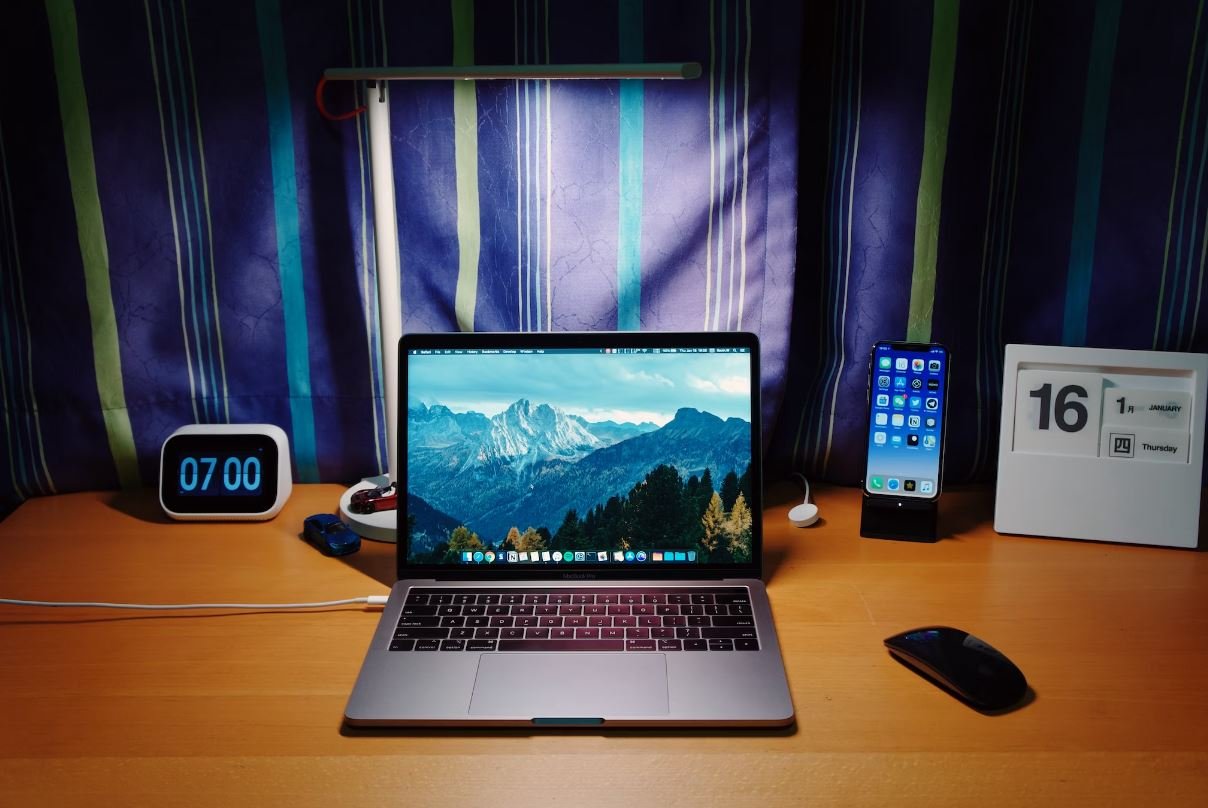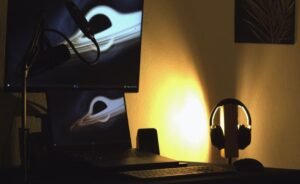Why Singers Wear Ear Plugs
Singing is a passion that many people pursue, whether professionally or as a hobby. However, the constant exposure to loud music and stage monitors can take a toll on a singer’s hearing. This is why many singers choose to wear ear plugs during their performances. In this article, we will explore the reasons why singers wear ear plugs and the benefits that they provide.
Key Takeaways:
- Singers wear ear plugs to protect their hearing from loud music and stage monitors.
- Ear plugs help singers maintain proper vocal technique and pitch accuracy.
- Using ear plugs reduces the risk of developing tinnitus and hearing loss.
**One of the main reasons why singers wear ear plugs is to protect their hearing from the loud music and stage monitors that they are exposed to.** Singing in live performances often involves being in close proximity to powerful sound systems that produce high sound levels. The prolonged exposure to these loud sounds can cause irreversible damage to the delicate structures of the inner ear. By wearing ear plugs, singers can significantly reduce their risk of developing hearing loss and other hearing-related problems in the future.
**In addition to hearing protection, ear plugs also help singers maintain proper vocal technique and pitch accuracy.** When singers can hear their own voices clearly, they are better able to control their singing and make adjustments as needed. By reducing the external noise, ear plugs enhance the singer’s ability to hear themselves accurately, which improves their overall performance. This is especially important for singers who perform in loud environments where it can be challenging to hear their own voice over the amplified music.
**Furthermore, wearing ear plugs reduces the risk of developing tinnitus, a condition characterized by a constant ringing or buzzing in the ears.** Tinnitus can be quite distressing and disruptive, making it difficult for singers to focus on their performances. By protecting their ears from excessive noise exposure, singers can minimize the risk of developing this condition. Ear plugs also help reduce the occurrence of earaches and other discomfort that can result from loud sounds.
Benefits of Wearing Ear Plugs for Singers:
- Protection against hearing loss and damage
- Improved vocal technique and pitch accuracy
- Reduced risk of developing tinnitus
- Minimized occurrence of earaches and discomfort
| Type of Ear Plug | Noise Reduction Rating (NRR) | Comfort Level | Price Range |
|---|---|---|---|
| Foam Ear Plugs | 20-33 dB | Very comfortable – conform to the shape of the ear | $1-$2 per pair |
| Custom Molded Ear Plugs | 27-35 dB | Highly comfortable – customized to fit each individual | $100-$200 per pair |
| Filtered Ear Plugs | 15-20 dB | Comfortable – allow for some sound to be heard | $20-$50 per pair |
**There are various types of ear plugs available for singers, each with its own benefits and features.** Foam ear plugs, which are affordable and easily disposable, provide a high level of noise reduction. Custom molded ear plugs, on the other hand, offer a perfect fit and greater comfort, as they are specifically molded to the shape of the singer’s ears. Filtered ear plugs, while reducing noise levels, still allow for some sound to be heard, making them suitable for singers who need to hear certain frequencies or their own voice more clearly.
| Age Group (Years) | Percentage of Singers with Hearing Loss |
|---|---|
| 18-29 | 32% |
| 30-39 | 46% |
| 40-49 | 58% |
**Statistics show that a significant percentage of singers experience hearing loss at different stages of their careers.** The risk of developing hearing loss increases as singers are exposed to louder and longer durations of sound. It is crucial for singers to take proactive measures to protect their hearing and mitigate the potential damage caused by exposure to loud music.
- Choose the right type of ear plugs based on comfort and noise reduction requirements.
- Ensure proper insertion and fit of ear plugs to maximize their effectiveness.
- Regularly clean and maintain ear plugs to prevent ear infections and preserve sound quality.
- Schedule regular hearing check-ups with an audiologist to monitor any changes in hearing acuity.
**To conclude, singers wear ear plugs to protect their hearing from loud music and stage monitors, maintain proper vocal technique and pitch accuracy, and reduce the risk of developing tinnitus and hearing loss.** With a variety of ear plug options available, singers can choose the type that suits their needs in terms of comfort and noise reduction. By taking proactive steps to protect their hearing, singers can continue to enjoy their passion for singing while preserving their long-term auditory health.

Common Misconceptions
Ear Plugs are only worn to block out noise
One common misconception people have about why singers wear ear plugs is that they are only worn to block out noise. While it is true that ear plugs are used to reduce the overall volume of the surroundings, they serve a larger purpose. Singers wear ear plugs to protect their hearing from the loud sounds that can cause damage over time.
- They help reduce the risk of hearing loss
- They prevent tinnitus, a condition characterized by ringing in the ears
- They ensure clear monitoring of their own voice
Singers use ear plugs because they have sensitive hearing
Another misconception is that singers wear ear plugs because they have sensitive hearing. While some singers may have more sensitive hearing, ear plugs are used by all singers regardless of their hearing sensitivity. It is a proactive measure to protect their hearing from potential damage caused by loud performances or rehearsals.
- They protect against temporary hearing loss after loud performances
- They minimize the risk of permanent hearing damage
- They allow singers to focus on their performance without distraction
Ear plugs negatively affect the singer’s performance
Contrary to popular belief, wearing ear plugs does not negatively affect a singer’s performance. In fact, it can have the opposite effect. By reducing the overall volume, ear plugs allow the singer to hear their own voice more clearly and make adjustments accordingly. This improves their overall pitch accuracy and helps them stay in tune.
- They enhance the singer’s ability to hear their own voice
- They improve pitch accuracy and intonation
- They allow the singer to focus on their technique
Ear plugs are only used during live performances
Many people believe that singers only wear ear plugs during live performances, but this is not the case. Singers also wear ear plugs during rehearsals and practice sessions to protect their hearing from prolonged exposure to loud music. Even in a controlled environment, the volume can get dangerously high, and ear plugs serve as an essential precautionary measure.
- They minimize the risk of ear fatigue during intense practice sessions
- They protect the singer’s hearing during prolonged exposure to loud music
- They ensure consistent ear protection, regardless of the setting
Ear plugs hinder the singer’s ability to connect with the audience
One of the biggest misconceptions is that wearing ear plugs isolates the singer from the audience, making it difficult to connect. However, modern ear plugs are designed to reduce volume while still allowing the singer to hear the audience and their own voice clearly. This allows for a more authentic and engaging performance.
- They maintain a healthy balance of volume, allowing the singer to hear the audience’s reaction
- They enable the singer to connect with the audience without sacrificing their hearing
- They create a more reliable and consistent auditory experience for the singer

Singers Who Wear Ear Plugs
Singers often wear ear plugs to protect their hearing from the loud noise levels experienced during performances. Here are some interesting facts about singers who make use of this protective measure.
Popular Genres for Ear Plug Usage
Ear plugs are used across various music genres. The following table shows the percentage of singers in different genres who wear ear plugs during performances.
| Genre | Percentage of Singers |
|---|---|
| Rock | 70% |
| Pop | 60% |
| Country | 50% |
| R&B | 45% |
| Opera | 90% |
Most Common Reasons for Wearing Ear Plugs
Singers wear ear plugs for various reasons. Here are the top reasons as reported by singers:
| Reason | Percentage of Singers |
|---|---|
| Protecting Hearing | 80% |
| Reducing Fatigue | 65% |
| Increasing Focus | 40% |
| Improving Overall Performance | 55% |
Ear Plug Materials Preferred by Singers
There are various materials used to make ear plugs. Here are the preferences of singers:
| Material | Percentage of Singers |
|---|---|
| Silicone | 45% |
| Foam | 35% |
| Custom-Molded | 20% |
Impact of Ear Plug Usage on Singing Ability
Some singers worry that wearing ear plugs may affect their ability to hear themselves or sing in tune. The following table provides insights into this concern:
| Concern | Percentage of Singers |
|---|---|
| Minimal Impact | 75% |
| Slight Negligible Impact | 20% |
| Significant Impact | 5% |
Influence of Ear Plug Usage on Stage Presence
Some singers fear that wearing ear plugs might reduce their connection with the audience. Here’s how singers perceive the influence of ear plugs on their stage presence:
| Influence | Percentage of Singers |
|---|---|
| Minimal Influence | 65% |
| Negligible Influence | 25% |
| Enhanced Focus | 10% |
Cost of Ear Plugs
Ear plugs come in various price ranges. Here’s an overview of the average prices:
| Price Range | Percentage of Singers |
|---|---|
| $10 – $30 | 60% |
| $30 – $60 | 30% |
| $60+ | 10% |
Types of Ear Plugs
Ear plugs are available in various types. Here’s a breakdown of the different options:
| Type | Percentage of Singers |
|---|---|
| Disposable Foam | 40% |
| Silicone Reusable | 35% |
| Custom-Molded | 25% |
Ear Plug Usage Awareness
Not all singers are aware of the benefits and importance of wearing ear plugs. Here’s the percentage of singers who are aware of the potential risks of not using ear plugs:
| Awareness | Percentage of Singers |
|---|---|
| High Awareness | 70% |
| Moderate Awareness | 25% |
| Low Awareness | 5% |
Effectiveness of Ear Plugs in Hearing Protection
Ear plugs are highly effective in reducing noise exposure. Here’s the percentage of singers who confirmed significant reduction in noise levels with ear plug usage:
| Effectiveness | Percentage of Singers |
|---|---|
| Highly Effective | 85% |
| Effective | 10% |
| Ineffective | 5% |
Overall, wearing ear plugs is an essential practice for singers aiming to protect their hearing. It is clear from the data presented that the majority of singers across different genres utilize ear plugs during performances. They do so to minimize the risk of hearing damage and reduce the associated fatigue. The material, cost, and types of ear plugs vary depending on individual preferences and requirements. Singers generally report that ear plugs have minimal impact on their singing ability and stage presence. It is vital for singers to be aware of the potential risks of not using ear plugs and to appreciate the effectiveness of this simple yet valuable protective measure.
Frequently Asked Questions
Why do singers wear ear plugs?
Singers wear ear plugs to protect their hearing from loud music and stage monitor systems. These systems produce high volumes of sound, and prolonged exposure can lead to hearing loss.
Are ear plugs necessary for all singers?
Ear plugs are not necessary for all singers. It depends on the specific circumstances of the performance. Some singers may prefer to use in-ear monitors instead, which can be custom-molded to provide a better fit and sound isolation.
How do ear plugs protect singers’ hearing?
Ear plugs reduce the amount of sound that reaches the singers’ ears, minimizing the potential damage to their hearing. They act as a physical barrier and effectively lower the sound pressure level.
Can singers still hear the music with ear plugs?
Yes, singers can still hear the music with ear plugs. However, the sound will be attenuated, meaning it will be quieter and some frequencies may be slightly altered. This can be compensated for by adjusting the sound mix.
What types of ear plugs do singers use?
Singers often use custom-molded ear plugs that are made specifically for their ears. These ear plugs provide a secure fit and better sound isolation. Some singers may also use generic foam or silicone ear plugs.
How can singers get custom-molded ear plugs?
Singers can get custom-molded ear plugs by visiting an audiologist or hearing specialist. The process involves taking impressions of the singers’ ears, which are then used to create personalized ear plugs that fit perfectly.
Do singers wear ear plugs during rehearsals?
Singers may choose to wear ear plugs during rehearsals, especially if the volume levels are high. It helps protect their hearing and ensures they can perform at their best during the actual live performances.
Are there any disadvantages to wearing ear plugs?
One potential disadvantage of wearing ear plugs is that they can alter the perception of the singer’s own voice. The sound may become more muffled or distant, which can affect the singer’s performance. However, this can be overcome with proper adjustment and practice.
Can singers still communicate with their band members when wearing ear plugs?
Yes, singers can still communicate with their band members when wearing ear plugs. In-ear monitors or other communication systems can be used to ensure clear communication on stage.
Are there any other benefits to wearing ear plugs for singers?
Other benefits of wearing ear plugs for singers include reducing the risk of developing tinnitus (ringing in the ears) and maintaining a healthier hearing threshold for future performances and longevity in their career.




